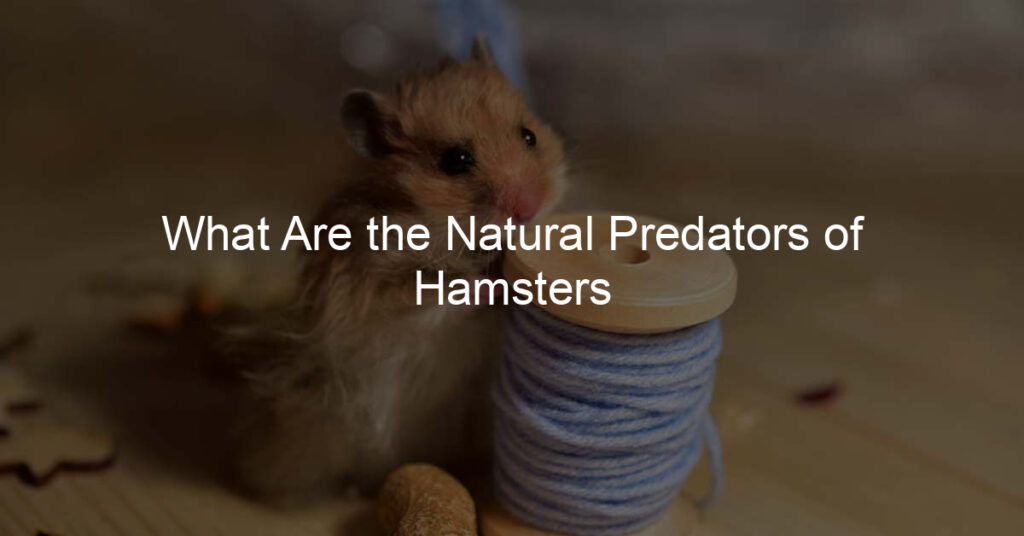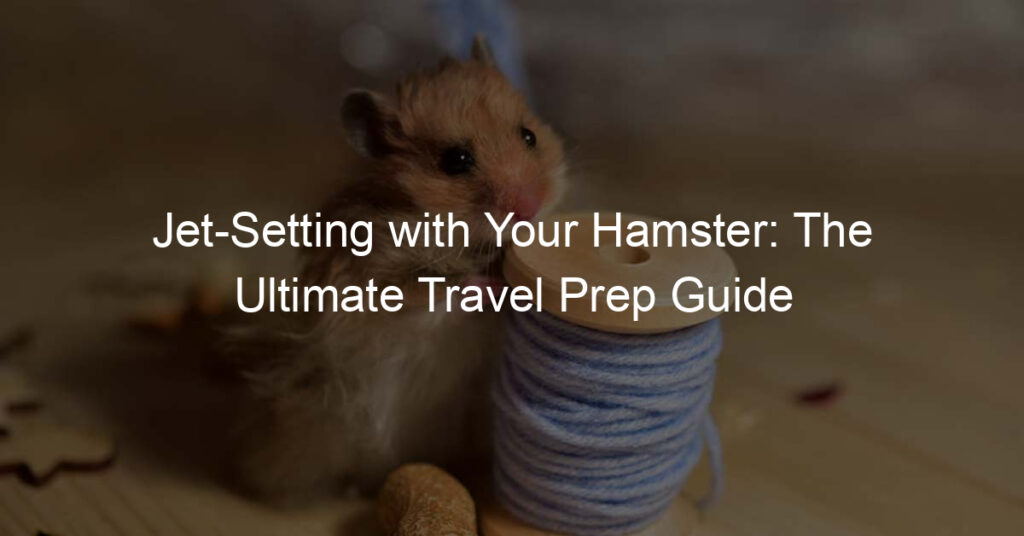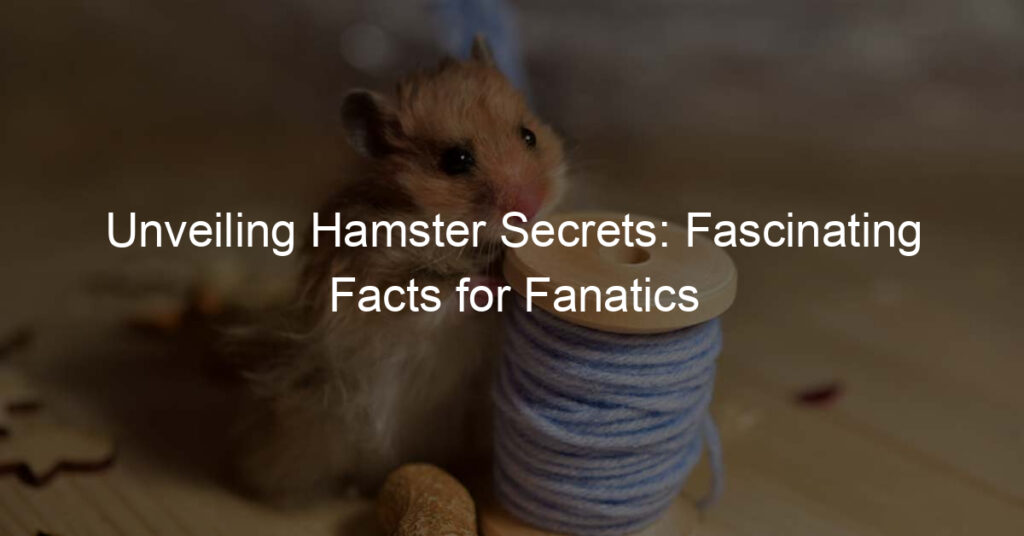Do you ever wonder what the natural predators of hamsters are? If you’re a hamster lover, you might be surprised to learn that there are actually quite a few animals that prey on these small creatures. In this blog post, we’ll take a look at some of the most common predators of hamsters and what they can do to protect their furry little friends.
Hamsters are small, defenseless animals that are easy prey for many predators.The most common predators of hamsters are snakes, owls, and cats.Hamsters can be easily killed by these predators, so it’s important to be aware of the dangers they face. There are some things you can do to protect your hamster from these predators, including keeping them in a secure enclosure and being vigilant when they’re outside. If you think your hamster has been attacked by a predator, take them to the vet immediately for treatment
What are hamsters most afraid of?
Hamsters are small and cute, but that doesn’t mean that they can’t get scared easily! Many things can set a hamster off – loud noises, sudden movement, and unfamiliar people or objects. It’s important to be very mindful when handling them, speaking quietly and suspending all fast movements. Most of all, what frightens them the most is the threat of predators.
This includes other animals such as cats, so it’s best to have both pets separate in order for the hamster to feel safe. To ensure their safety even further, keep your pet in an enclosed area or habitat such as a cage with tiny bars too small for escape from predators.
Can hamsters sense predators?
Hamsters are small, furry rodents that make cute and lovable pets, but who would have thought they’d also be much alert animals? While hamsters may appear to be easily intimidated by loud noises or sharp movements, researchers argue that they can actually sense when predators are nearby.
Studies suggest that even when all of their other senses are dulled, hamsters can still pick up on subtle signs that hint at the presence of a predator, like a change in the surrounding temperature or invisible vibrations. It’s truly amazing how the tiniest things in life can possess such an impressive range of capabilities.
How do hamsters avoid predators?
Hamsters are an incredibly resourceful species, and their impressive defense mechanisms make them expert survivors in the wild. For starters, they’ve adapted to live in burrows which act as a safe haven from predators. Their man-made tunnels also can have multiple entrances and exits, allowing them to flee quickly if they sense impending danger.
They have super-sensitive senses including hearing, smell, and sight which keeps them sharp and awake. Plus, hamsters are excellent climbers and jumpers skilled at scaling walls and fences to stay away from potential harm. All these skills combined make it easier for hamsters to dodge potential predators and stay safe!
How do hamsters defend themselves?
Hamsters are normally small and vulnerable animals, but they do possess some impressive defensive skills. To defend themselves they will commonly bite as a warning to predators, making them less appealing targets. Hamsters also have a rather unique form of self-defense – when being attacked by a predator, they will puff up their fur and make themselves appear larger than they actually are in order to intimidate the threat.
This tactic is made more effective with their natural camouflage coloration helping hamsters blend into their environment for additional protection. With these handy defenses, it’s no surprise that hamsters continue to survive in the wild!
Wrapping up: What Are the Natural Predators of Hamsters?
To conclude, hamsters may not be the most intimidating creature in the animal kingdom, but they are certainly much more timid and fearful than we might give them credit for! From sensing impending danger to protecting themselves with their sharp teeth and claws, it’s clear that these small rodents have an impressive array of defense mechanisms at their disposal.
While these adorable animals may not be a match for a predator like a hawk or a bobcat, humans can feel secure knowing that our beloved pets will do whatever it takes to keep themselves safe. Understanding the fear that comes with being a small creature in a big world will help us take steps such as providing plenty of hiding spots and comfortable bedding to make sure your pet feels safe and secure in your home.








